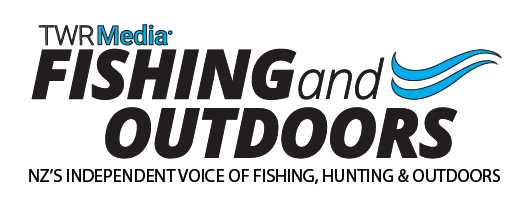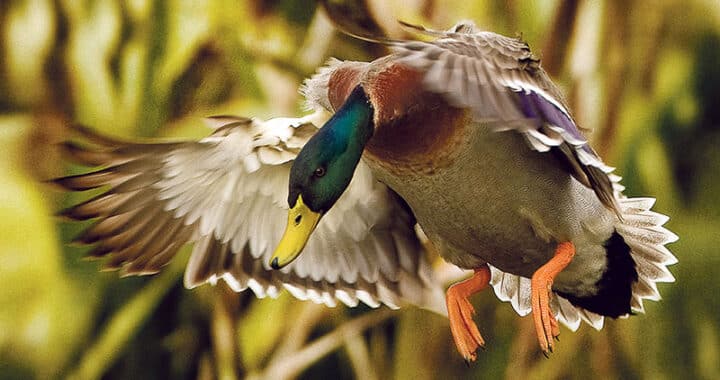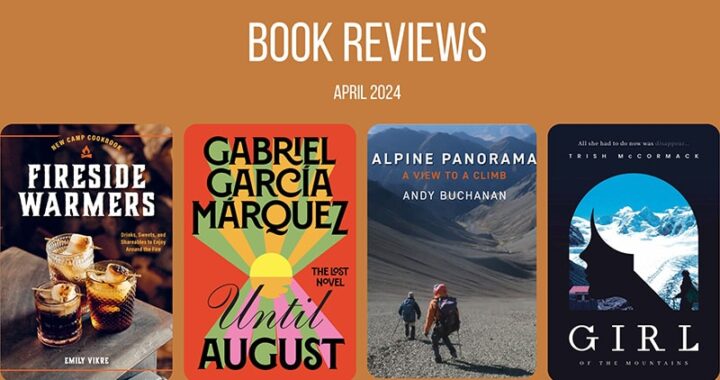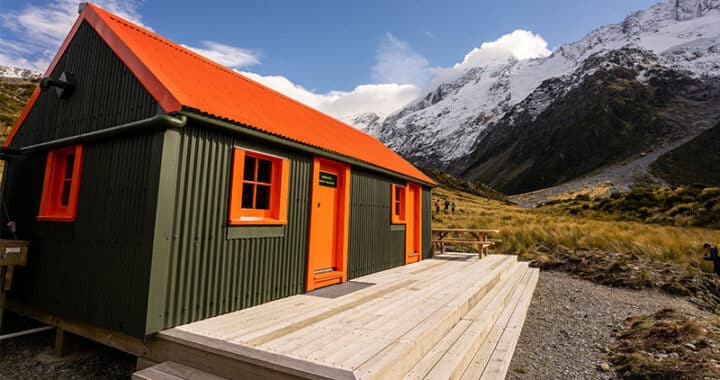Cover story: Ocean Grid
6 min read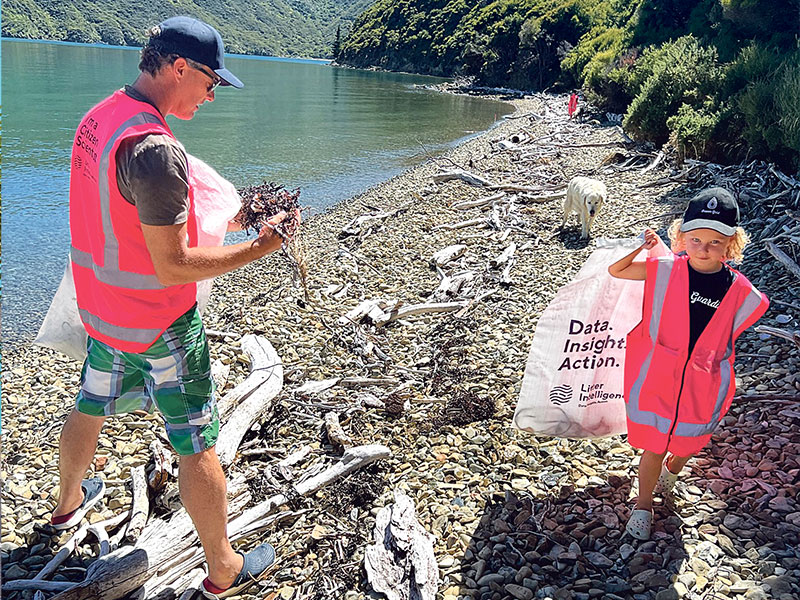
Data gathering in the Outer Marlborough Sounds. Photo: Supplied
Ocean Grid was family-founded when Amanda Rudkin’s children, then aged four and six, raised concerns about the rubbish they were seeing on their local beaches in the Marlborough Sounds. They were soon in action cleaning up these areas, taking photos of what they found and sharing them on social media to raise awareness for the future of our oceans.
Amanda is proud to say that her children are the driving force behind the project.
“We want [them] to be citizens of the future who have an awareness of the issues around them, to be involved in the solutions, and be able to influence change. We love the children’s ideas – they see everything so clearly. These issues have not been created by them, but we love their passion and motivation to be part of the change that is so desperately needed,” she says.
Images from their collections are shared in flat-lay style on Instagram (@ocean.grid), which Amanda believes is most effective for conveying their core message. She says it allows people to clearly see the range of plastic waste ending up in our oceans and makes it easy to watch for patterns that occur.
“[It] allows us and other community groups to investigate further the sources of rubbish and how we can possibly prevent them from entering the ocean.”
Both Amanda and her husband grew up immersed in the ocean, descending from a long line of avid sailors. Now, from their home in the Marlborough Sounds, the Rudkin family dedicate their days to developing project Ocean Grid.
“Being next to the ocean, it is very accessible for us to be able to help protect what we love. We are passionate about the environment, and this has opened up many learning opportunities for our children and family.
A growing community

Ocean Grid has grown organically, Amanda says, as their initial mission was simply to stop feeling dismayed by the plastics they would find and start helping the planet, even if just in a small way.
“The project has expanded with support from environmental agencies, groups, and like-minded projects in New Zealand and overseas. We have added the Citizen Science projects into what we are doing, which brings additional framework and real data to the project,” she says. “The project has reached our extended family too; everyone is helping where they can with beach cleaning, spreading awareness, and reassessing the choices they make based on how that impacts the environment.”
Waking up surrounded by the natural world is a key reason Amanda adores living in the Marlborough Sounds. However, this means witnessing the rising litter levels first-hand.
“It is total immersion in the bush and marine environment. Being on the water every day allows us to be connected to what is happening around us and also able to respond quickly if we find marine debris that needs dealing with, which is most days.
“Our biggest challenge about a project like this is remaining positive about that state of the environment and the climate when you see the impacts first-hand. At times you need to step back, as the concern for the future can be overwhelming,” says Amanda. “We have a love of all natural things and see so often the impact that human pollution is having on marine life and sea birds, so we are motivated to help protect the life within the sea and the environment for our future generations.”
Collaborations

Six months after launching their project, the Rudkin family began their citizen science work with Sustainable Coastlines and The Moana Project/MetOcean – two organisations that are both progressive in the marine environment space, Amanda says.
“These projects allow us to be involved in real-time data that we know has an impact on future ocean solutions. This aligns closely with our family and project values so it’s easy for us to carry our energy and passion for these projects.”
The family’s collaboration with Sustainable Coastlines came about after Amanda simply reached out to see if they could be of any assistance in the Marlborough Sounds. She says there are numerous survey sites in the area that are monitored by local schools and community groups.
“We are doing surveys on boat-only access beaches in Kenepuru and the Outer Pelorus Sounds, which gives us some additional points of Litter Intelligence data for the Marlborough Sounds.”
Passion for the planet

There’s always more that can be done when it comes to conservation, and this family’s passion for the planet means they’re motivated to take on projects of all kinds in support of the greater cause.
“We’re also in the early phases of a predator trapping programme on our land here, which we feel ties in so well with our family values,” Amanda says. “We are part of the Kaitiaki here, the guardians of our time, and we want to do all we can to help restore the environment so that all living things thrive here.”
Amanda emphasises the deadly impact ocean plastics have on the livelihoods of sea birds and other marine life and how this has concerning implications for people.
“The marine life and sea birds choke or ingest the plastic and eventually starve to death, as there’s no room for their food. They can also become entangled in fishing gear and ghost fishing nets. Recent studies have shown that microplastics are entering most levels of the food chain and onto our plates and have recently been detected in human blood.”
The Rudkins believe it is important to collect data through Litter Intelligence Surveys to best monitor litter activity in the Sounds. Amanda says everyone benefits from this type of research, as the evidence-based data is used by the Ministry of Environment, Department of Conservation, environmental agencies, businesses, and regional and local councils to find solutions.
“It provides data that can highlight issues with frequency of litter, specific types of litter, environmental impact from industry, and more. The data is then used in formulating environmental actions plans, regulation, change, and improvement for our waterways and marine environment.”
Additionally, data collected by the Mangōpore Sensor on their boat provides MetOcean with real-time data, which assists with Marine Heatwave Forecasting. “Given we’re on the water most days, we felt as a family we were able to assist the Moana Project/MetOcean with temperature data from the Marlborough Sounds.”
Amanda says that it’s great to have her children showing an interest in developing their understanding of what is happening under the surface, particularly as sea temperatures rise.
“The children love that the live data goes straight from our boat to the Oceanographers at MetOcean and they can see a real purpose in the work we’re doing while involved in this project. We also love that the clever technology was developed locally in Nelson by Zebratech.”
Adopting a sustainable lifestyle

Marlborough Sounds marine litter. Photo: Supplied 
Summer beach cleaning. Photo: Supplied 
The Rudkin family. Photo: Supplied 
Litter Intelligence Data. Photo: Supplied
When it comes to living sustainably, Amanda says her top piece of advice would be to connect with the local environment and understand the issues around us before going inward to look at what choices and changes we can make, such as how we consume goods, fashion, and more.
“Where possible, we choose to shop local to support New Zealand businesses. We eat organically and seasonally, reuse glass containers and storage devices, reuse and recycle, maintain low energy usage within our house, eat homegrown veges, compost, and support other businesses that have adopted sustainable practices, especially with regards to seafood.”
Above all, Amanda says avoiding plastics and single-use items wherever possible is a top priority.
“It starts with our choices, actions, and values, then how our children learn from that and take it forward in their lives. That’s the ripple effect that can’t be underestimated.
“We have loved having our stories shared by the Ministry of Environment and the support we have had from other conservation agencies and groups. We also love the special encounters we have had with marine life, such as whales, dolphins, octopuses, seals, fish, and birds. You share a special moment with them when you know you’re doing all you can to help them and their environment.”
Amanda says the connections the family has formed with like-minded people all over the world doing similar work have given them a real sense of unitedness.
“A collective team, no matter how small, can truly make a big difference.”
